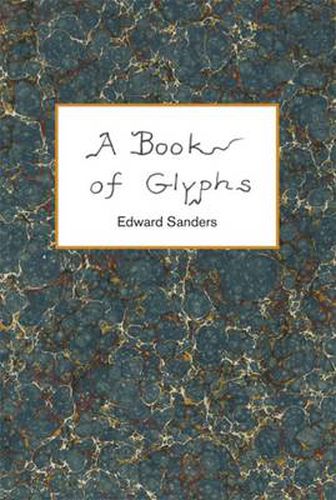Readings Newsletter
Become a Readings Member to make your shopping experience even easier.
Sign in or sign up for free!
You’re not far away from qualifying for FREE standard shipping within Australia
You’ve qualified for FREE standard shipping within Australia
The cart is loading…






A Book of Glyphs is a facsimile reproduction of legendary author, musician and Fugs founder Ed Sanders’ first book-length work of glyphs, which he created in Florence, Italy in 2008, using colored pencils and a small sketchbook. Though each piece stands on its own, collectively the 72 glyphs convey, with characteristic humility and humor, many of the themes explored by Sanders over his long and diverse career, including history, myth, activism and pacifism. The glyph– a drawing that is charged with literary, emotional, historical or mythic and poetic intensity –has been a dimension of Sanders’ poetry since 1962; he cites Zen rock gardens, the markings on Egyptian tombs and the typographic designs in John Cage’s writings as influences in the development of the form. Sanders’ name for the original notebook is Smile-Book of Grace-Joy, which aptly describes the range of concerns explored in this important and joyful work.
$9.00 standard shipping within Australia
FREE standard shipping within Australia for orders over $100.00
Express & International shipping calculated at checkout
A Book of Glyphs is a facsimile reproduction of legendary author, musician and Fugs founder Ed Sanders’ first book-length work of glyphs, which he created in Florence, Italy in 2008, using colored pencils and a small sketchbook. Though each piece stands on its own, collectively the 72 glyphs convey, with characteristic humility and humor, many of the themes explored by Sanders over his long and diverse career, including history, myth, activism and pacifism. The glyph– a drawing that is charged with literary, emotional, historical or mythic and poetic intensity –has been a dimension of Sanders’ poetry since 1962; he cites Zen rock gardens, the markings on Egyptian tombs and the typographic designs in John Cage’s writings as influences in the development of the form. Sanders’ name for the original notebook is Smile-Book of Grace-Joy, which aptly describes the range of concerns explored in this important and joyful work.